In vitro
Eugène Atget, Sara Deraedt, Silvia Kolbowski, Mary Overlie, Jindřich Štyrský
Curated by Josephine Graf
November 3 - December 10, 2017
press release
Contemporary Art Daily
Contemporary Art Writing Daily
Art Viewer
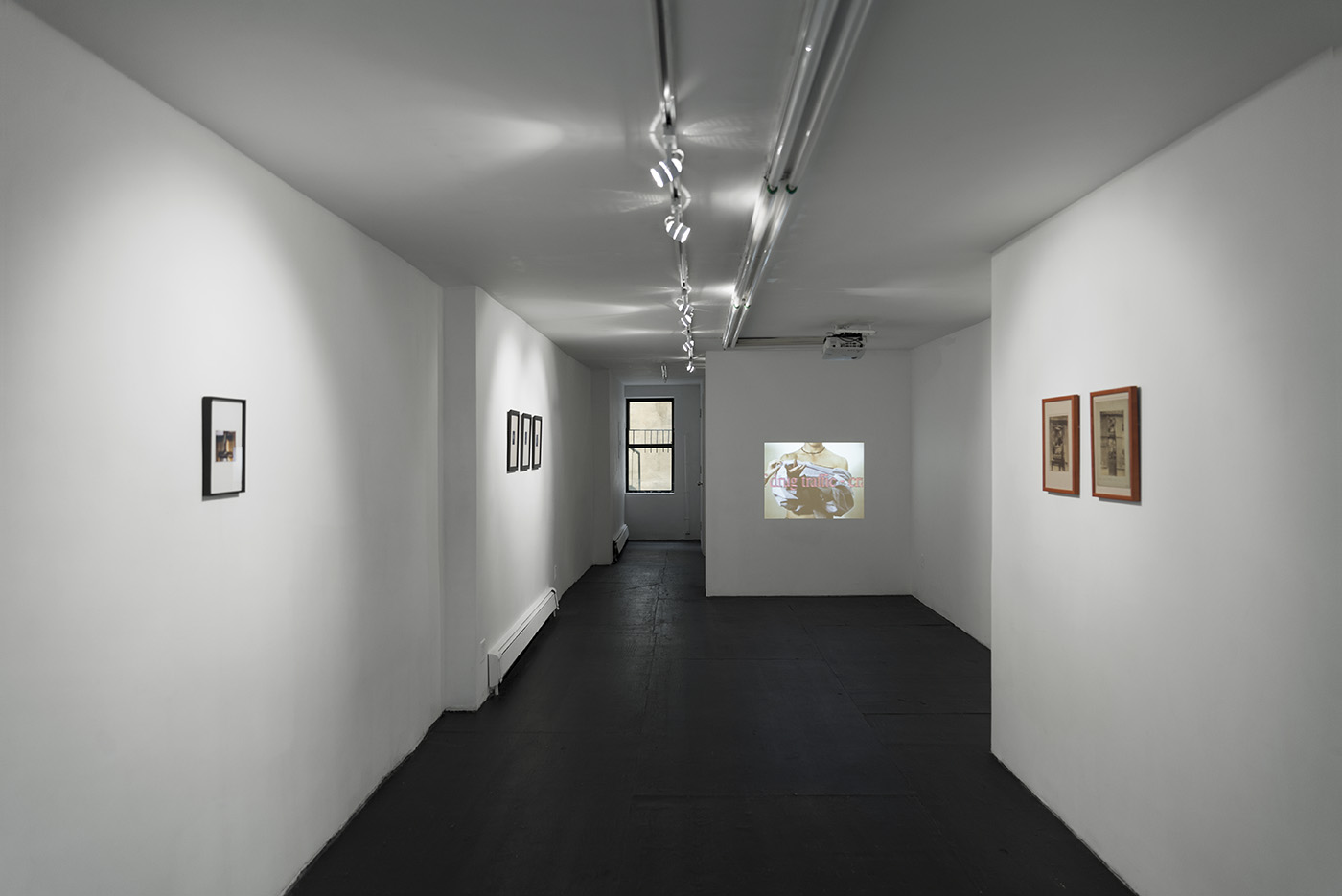
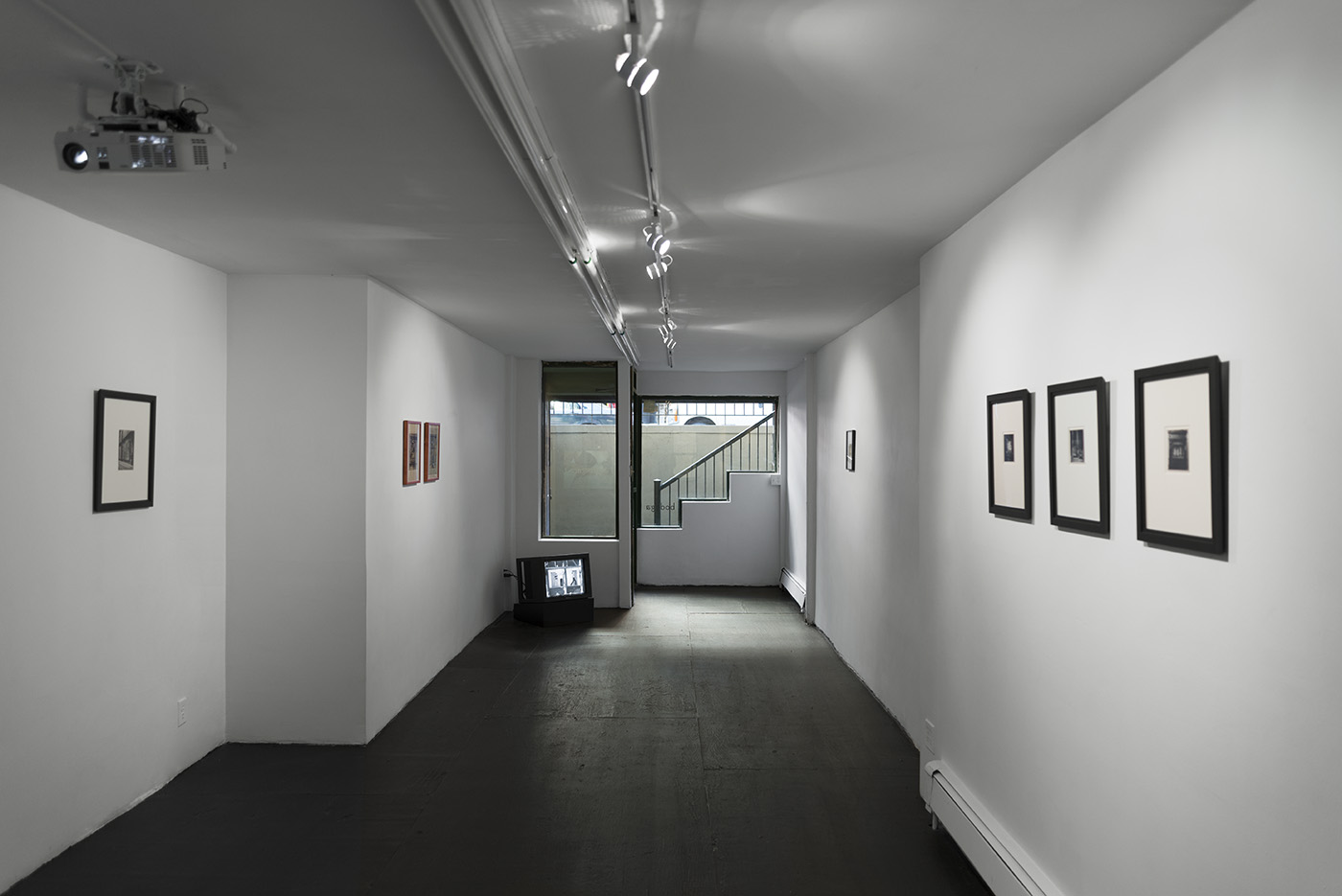
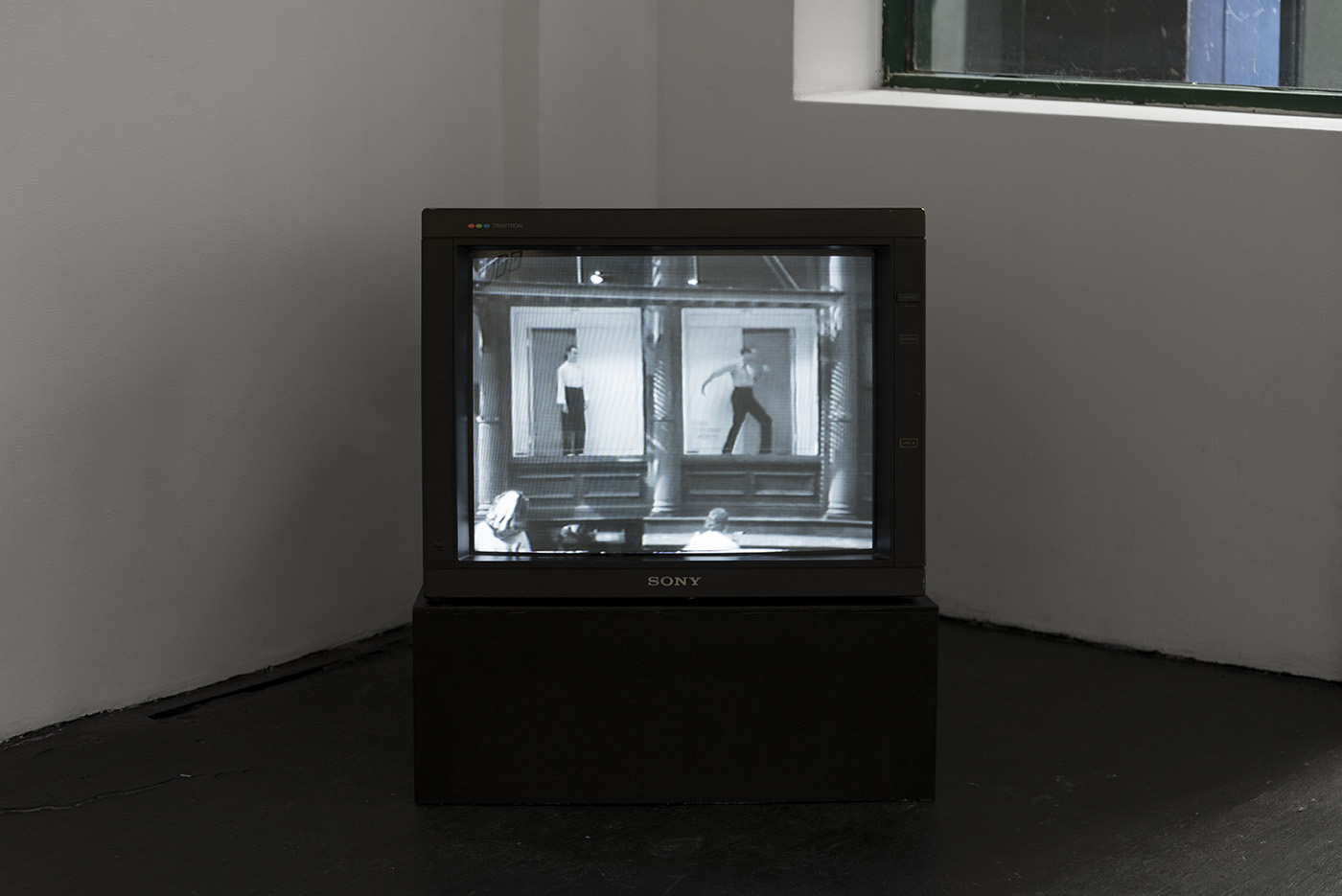
Mary Overlie
Window Pieces, 1977
Video
1:38:47
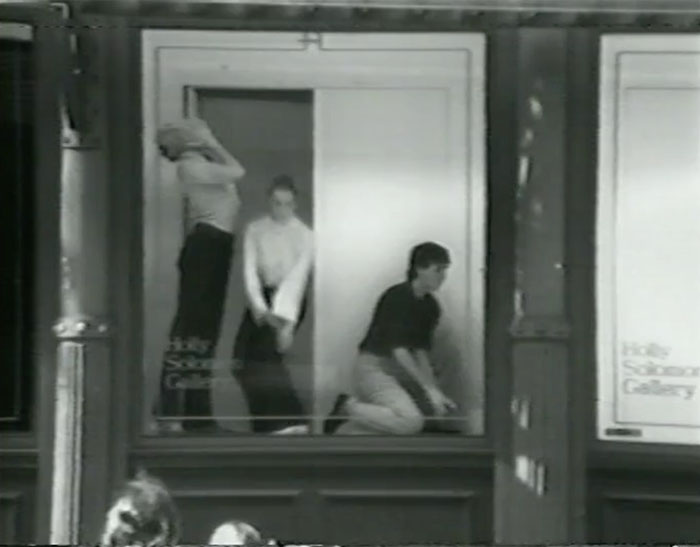
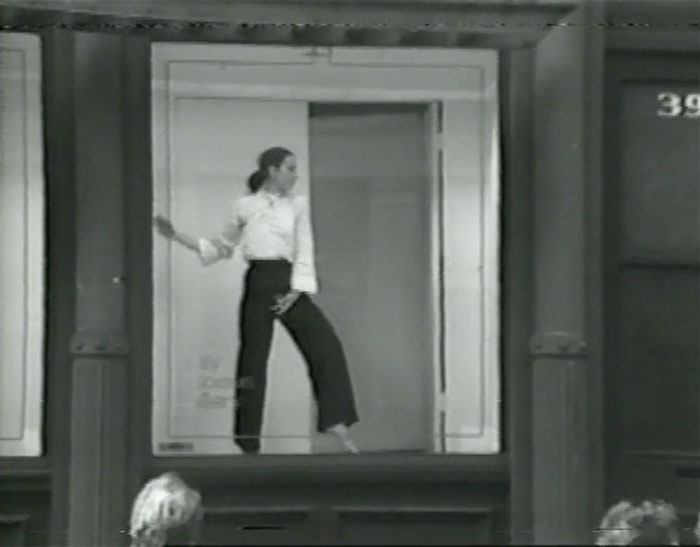
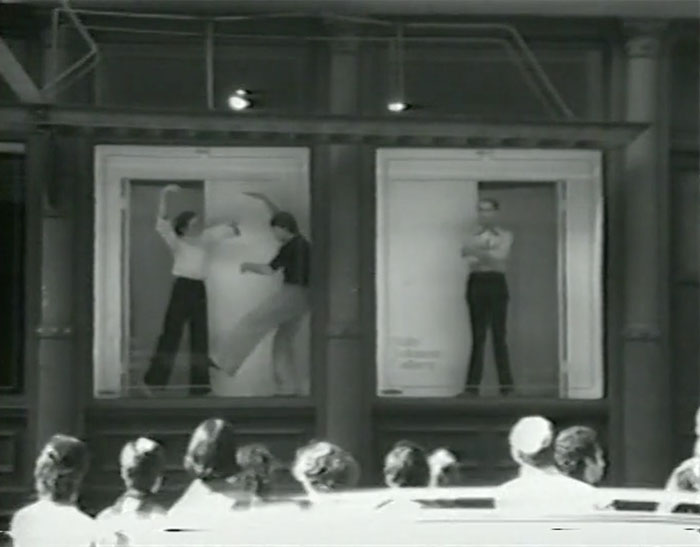
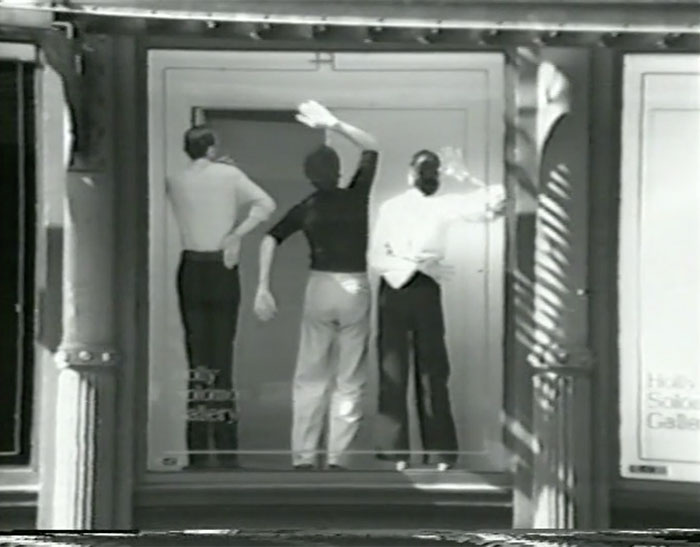
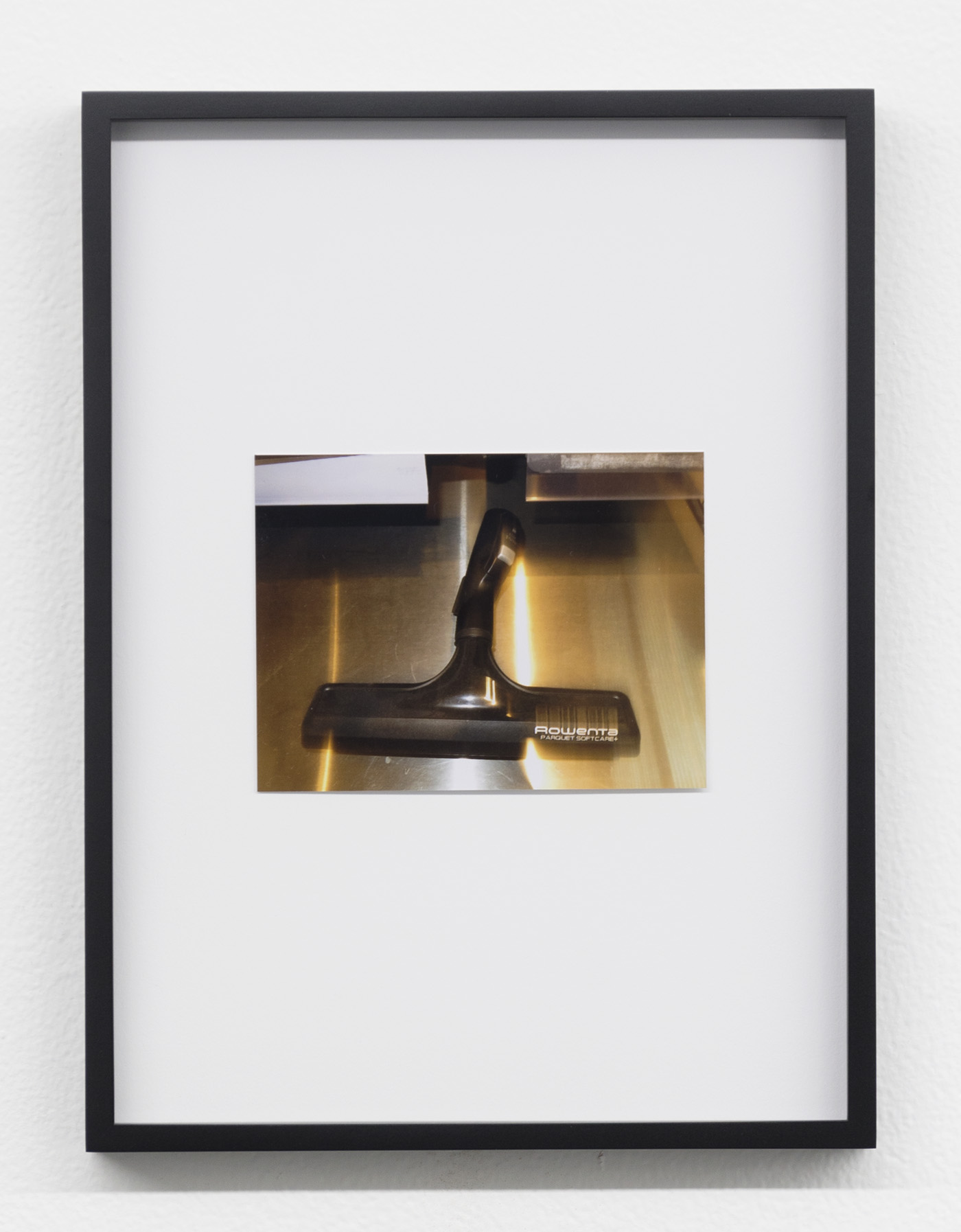
Sara Deraedt
Rowenta, 2016
Lambda print
3.5 x 4 in (8.9 x 10.2 cm)
11 x 8.25 in (27.9 x 21 cm) Framed
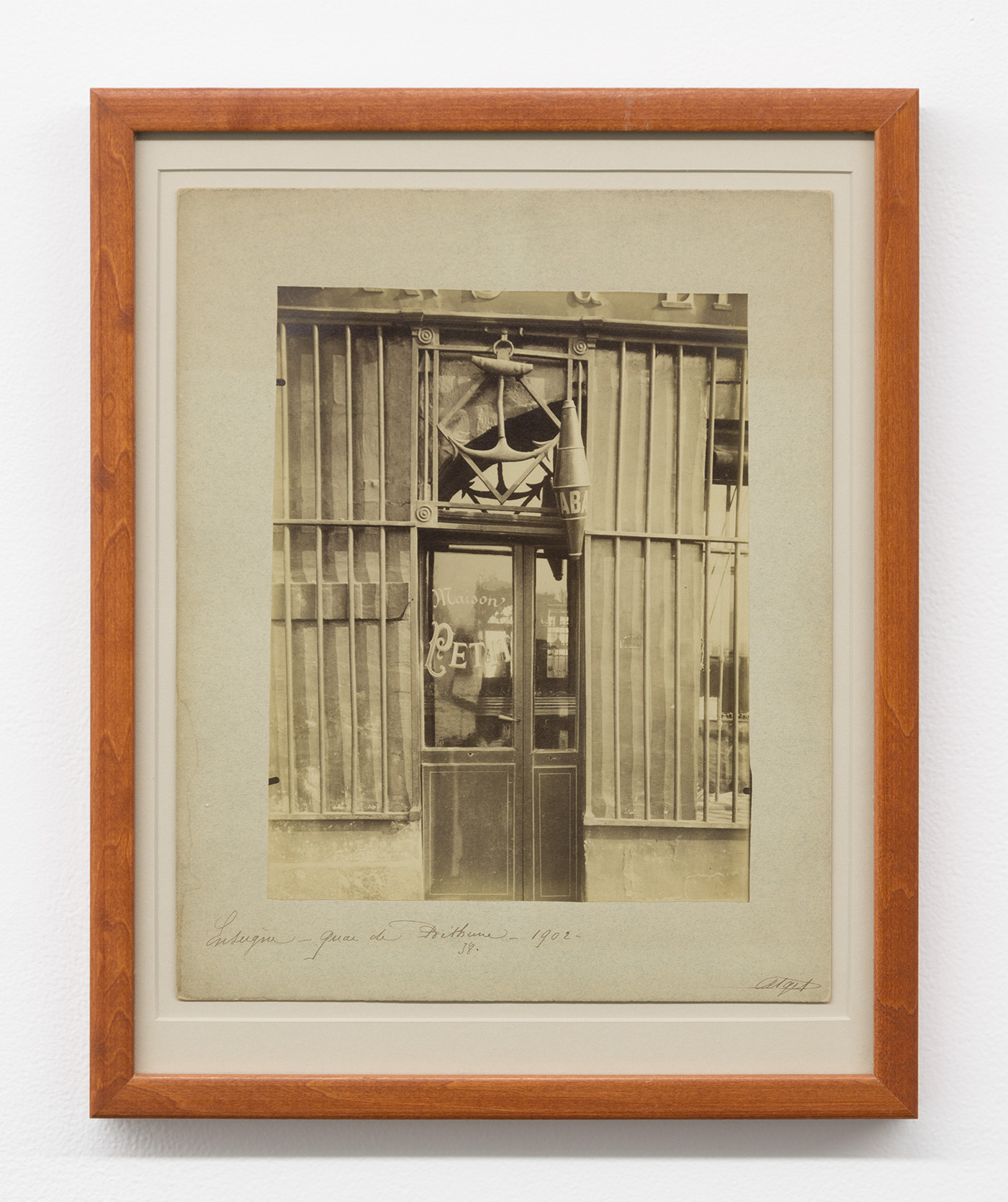
Eugène Atget
Maison "Petit" / Tabac "à l'ancre", enseigne. 38, quai de Béthune, 4ème arrondissement, Paris, 1902
Albumen print
8.5 x 7 in (21.6 x 17.8 cm)
15 x 12 in (38.1 x 30.5 cm) Framed
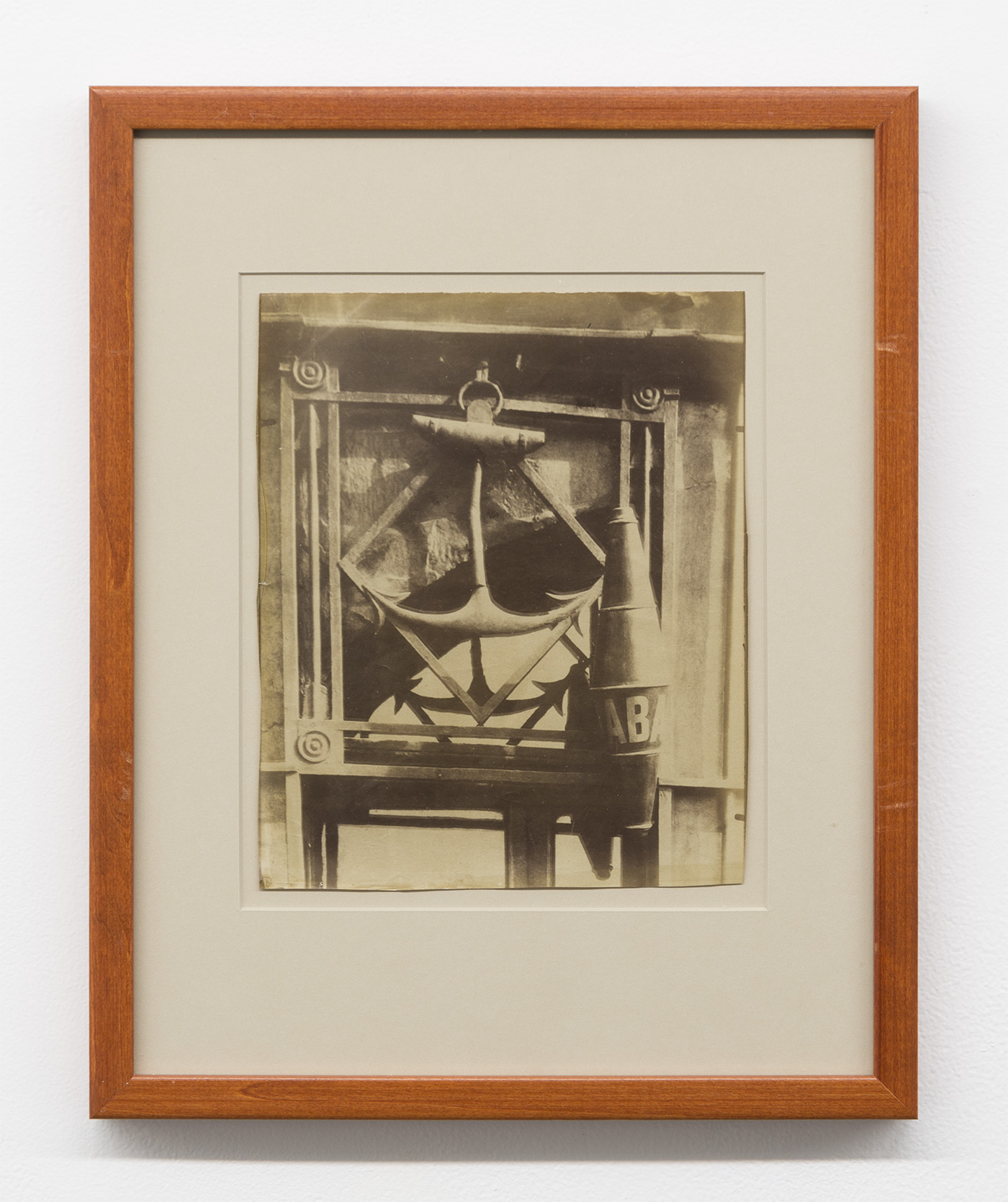
Eugène Atget
Maison "Petit" / Tabac "à l'ancre", enseigne. 38, quai de Béthune, 4ème arrondissement, Paris, 1902
Albumen print
8.5 x 7 in (21.6 x 17.8 cm)
15 x 12 in (38.1 x 30.5 cm) Framed
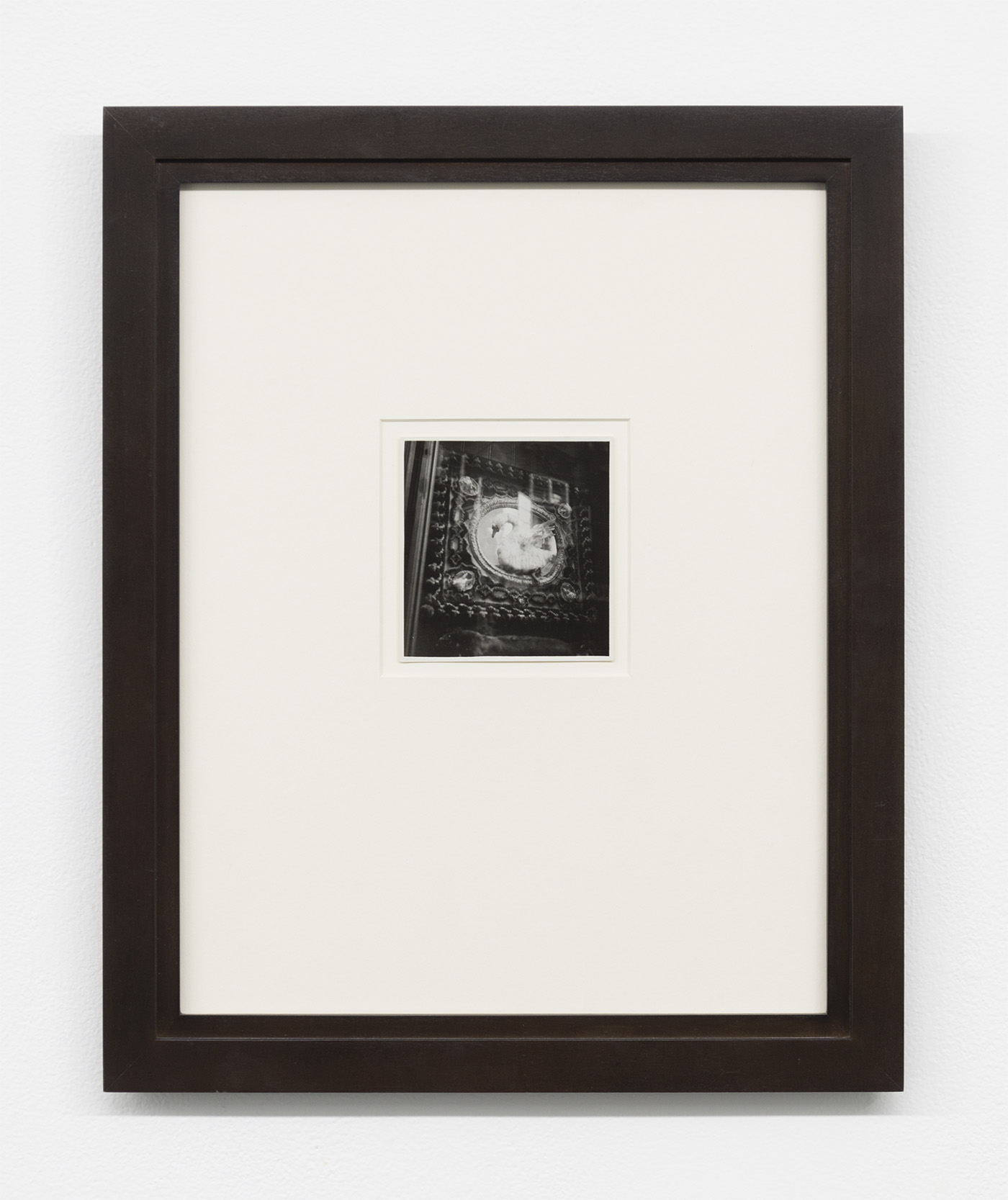
Jindřich Štyrský
Untitled (from Na jehlách těchto dní) ["On the Needles of These Days"] p. 20, 1934
Vintage silver gelatin print
3.5 x 3.5 in (8.9 x 8.9 cm)
16 x 13 in (40.6 x 33 cm) Framed
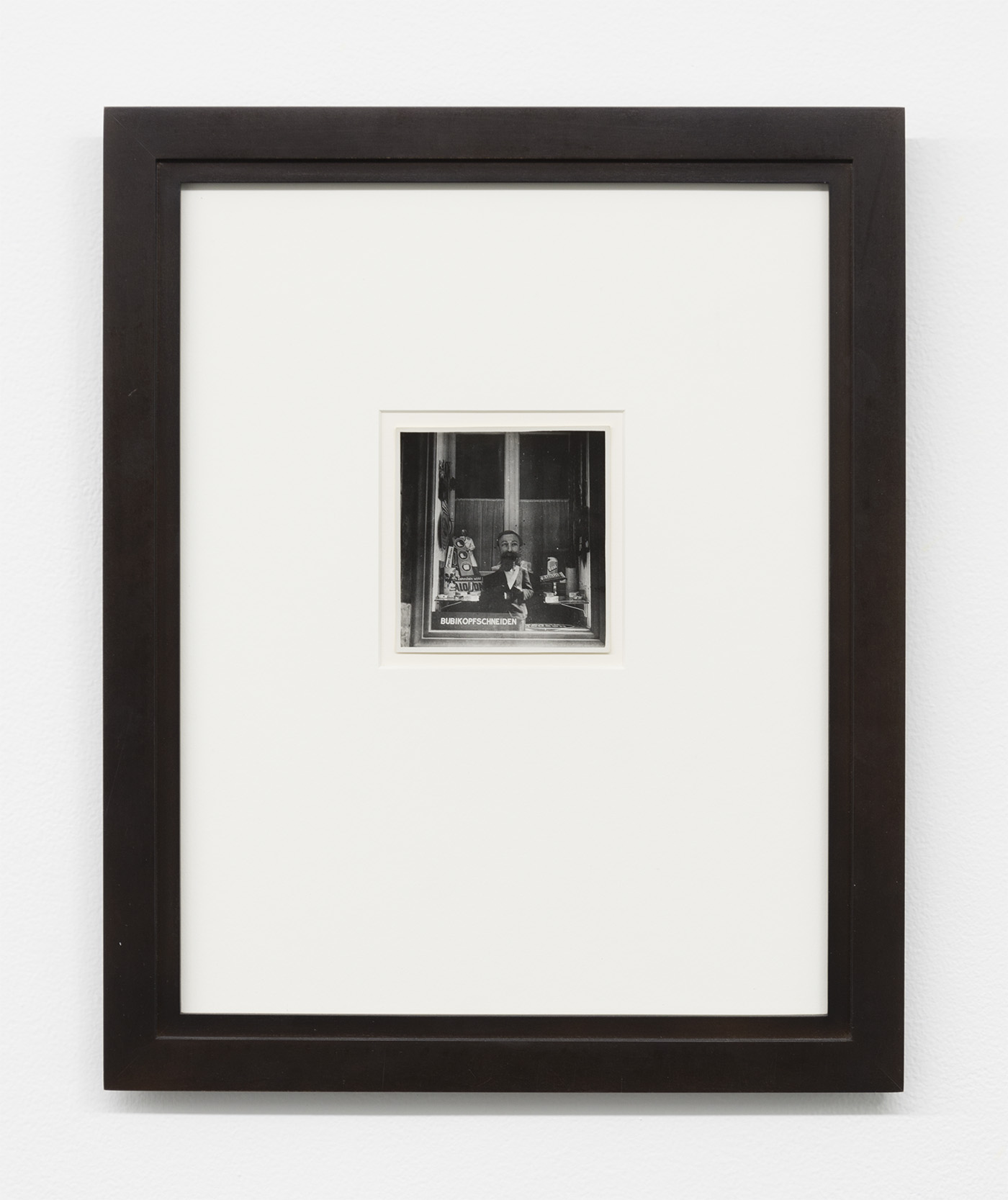
Jindřich Štyrský
Untitled (from Na jehlách těchto dní) ["On the Needles of These Days"] p. 19, 1934
Vintage silver gelatin print
3.5 x 3.5 in (8.9 x 8.9 cm)
16 x 13 in (40.6 x 33 cm) Framed
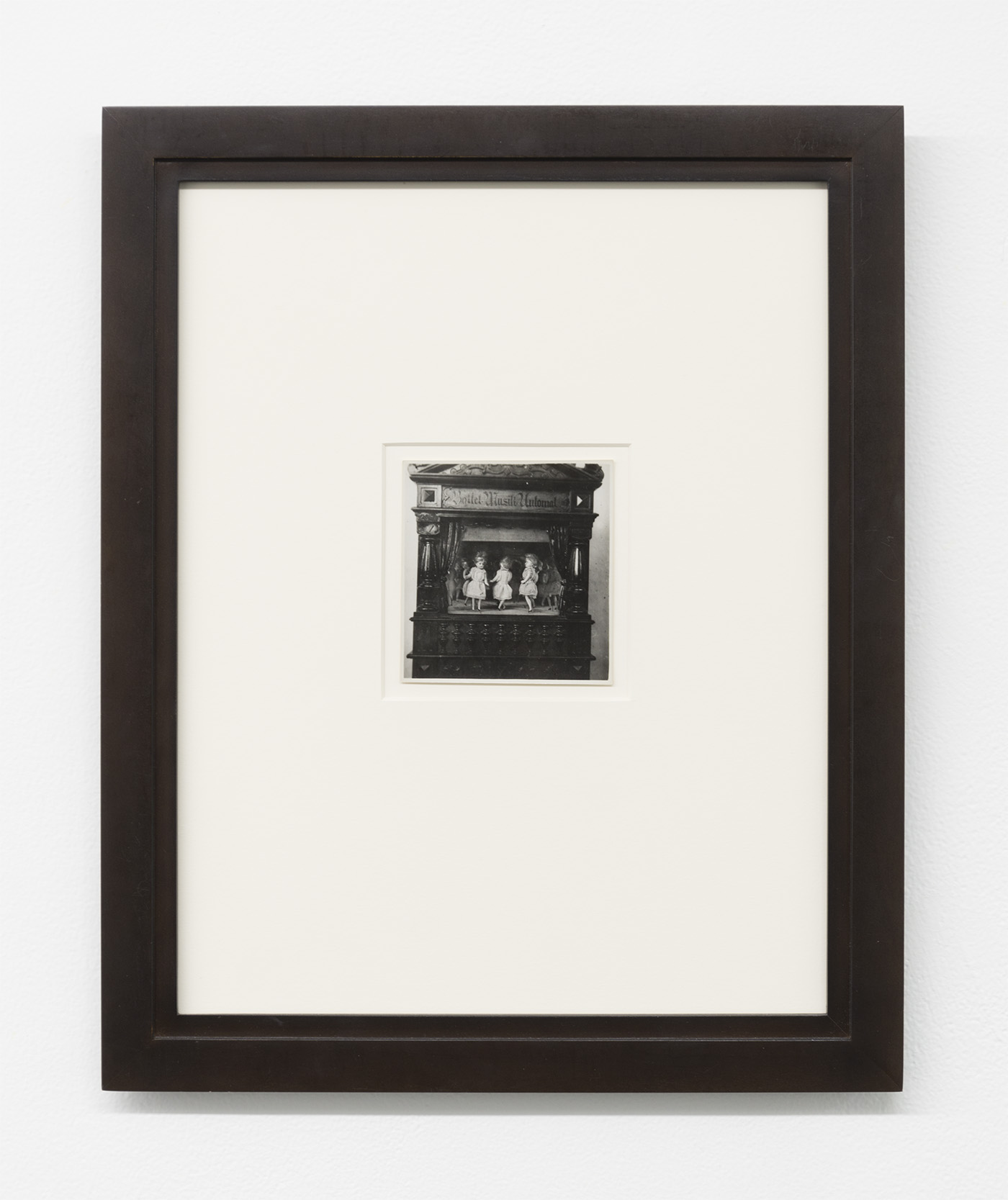
Jindřich Štyrský
Untitled (from Na jehlách těchto dní) ["On the Needles of These Days"] p. 40, 1934
Vintage silver gelatin print
3.5 x 3.5 in (8.9 x 8.9 cm)
16 x 13 in (40.6 x 33 cm) Framed
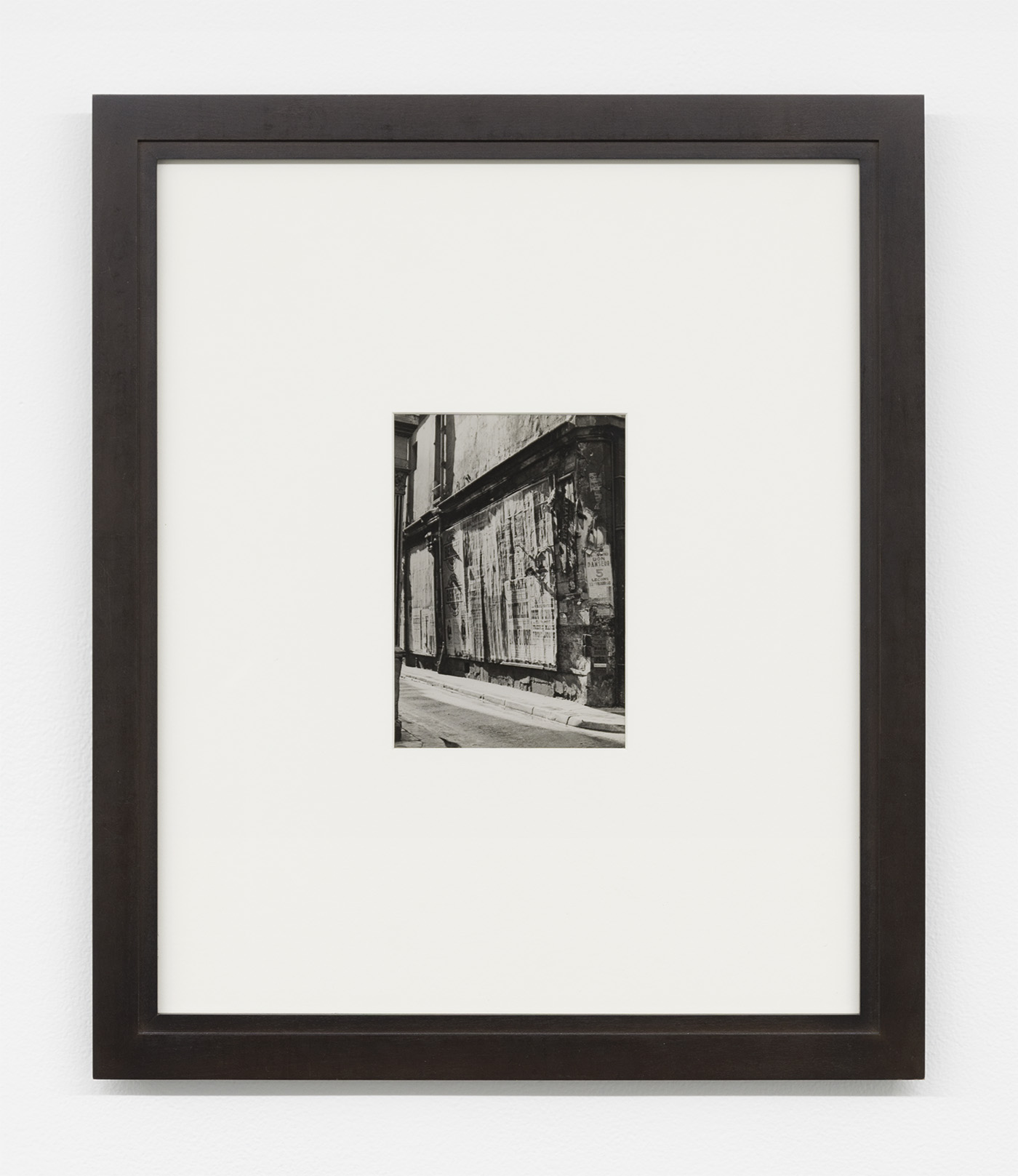
Jindřich Štyrský
Untitled, 1934
Vintage silver gelatin print
6.75 x 4.75 in (17.1 x 12.1 cm)
19 x 16 in (48.3 x 40.6 cm) Framed
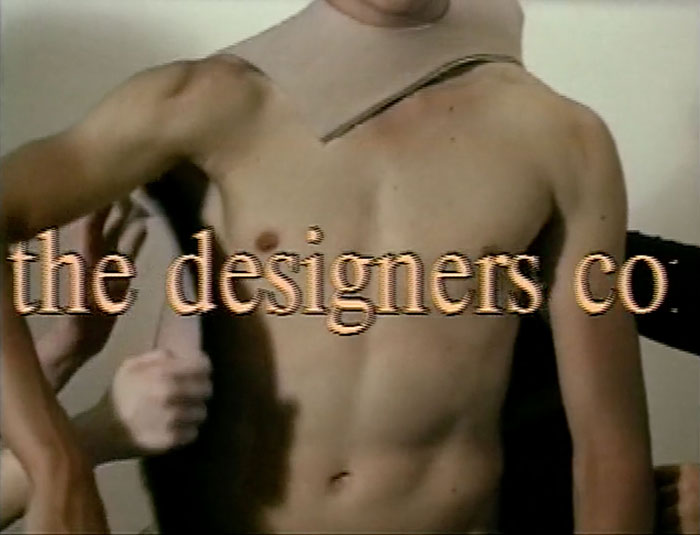
Silvia Kolbowski
Seven x 7, 2000
Video
14:37

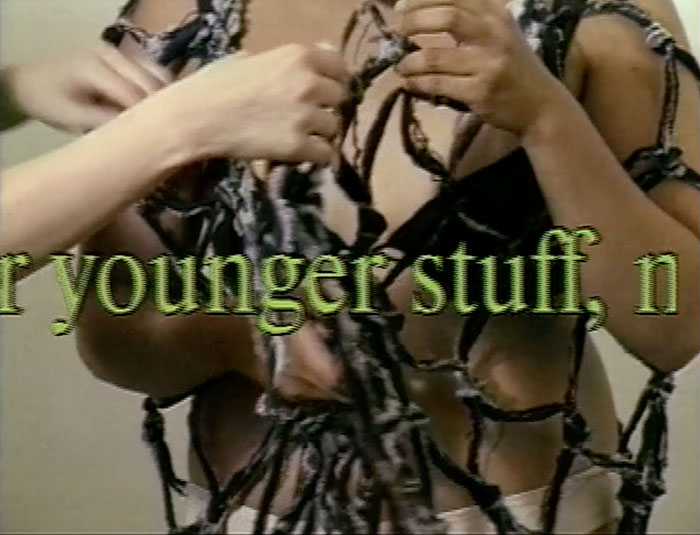
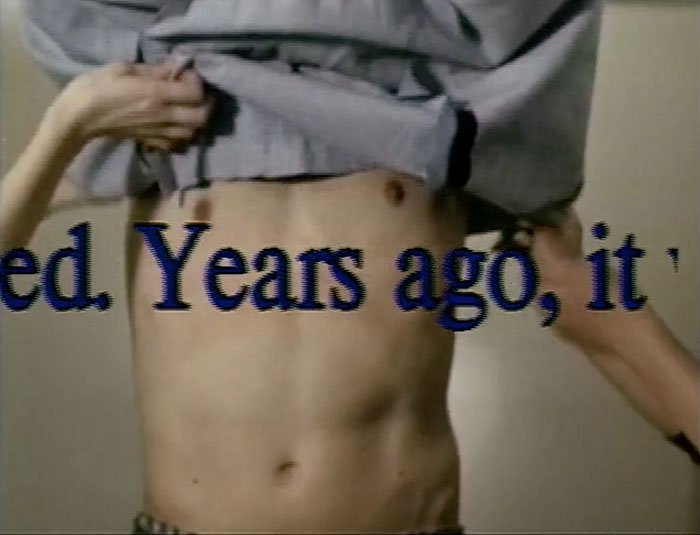
The shop window has a double nature—it is both glassed in and extroverted at once. It speaks a language of enticement, or what we might recognize as the basic give-and-take of flirtation. As manifested in the arcades of nineteenth-century Paris, the shop window interested Walter Benjamin as the site where he first saw art “enter the service of the merchant.” It comes as no great surprise that the shop window became a point of convergence between art and commerce. On a formal level, it was indebted to both the still life and the proscenium “window” of Alberti’s perspectival schema. Tapping artists to design window displays became de rigueur in the twentieth century as a means of energizing flagging markets: think of Dalí’s dressing of the Bonwit Teller windows, or Rauschenberg and Johns’ surreal arrangements for Tiffany’s under the code name Matson Jones.
Another history runs parallel to that of art’s “service” to commerce. Throughout the twentieth century, artists have recalibrated Benjamin’s initial formulation, claiming the shop window as an object of not only aesthetic but nearly anthropological contemplation—a kind of metonym for the market at large, where symptoms of urban transformation concentrate. This is the history that In vitro, an exhibition staged in a storefront gallery (a former nail salon), considers.
Two photographs from 1902 by Eugène Atget, among the earliest photographers to document the modernizing streets of Paris, and the first to take interest in the shop window, tether the exhibition. A sampling of subsequent moments follow: Jindřich Štyrský’s diminutive photographs of 1930s streetscapes, shot in Paris and Prague; a dance by Mary Overlie (like a tableau vivant) performed in 1977 in the windows of Holly Solomon Gallery on West Broadway; a video from 2000 by Silvia Kolbowski conceived for Seven boutique—a harbinger of Orchard Street’s transformation—that glances critically at the comingling of facade, fashion, and gentrification; and a photograph by Sara Deraedt from 2016. In this filmy portrait of a Rowenta vacuum caught behind glass, Deraedt captures the unlikely persistence of the shop window’s peculiar theater—its tension between stillness and animation, scrim and depth. Through its use, reuse, or vacancy, the shop window has served as a screen upon which shifting tastes and powers are broadcast. Its eclipse by more contemporary screens pending, it is now also an obsolescent space—a holdover from waning habits of desire that remain, nonetheless, built into the bones of the city.
© 2010-2020 Bodega